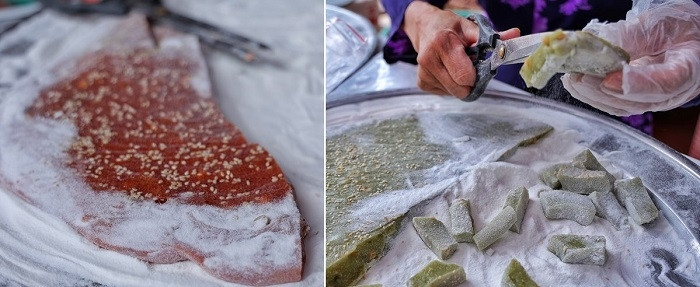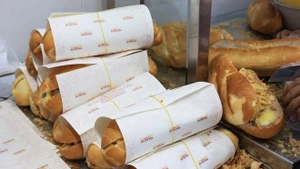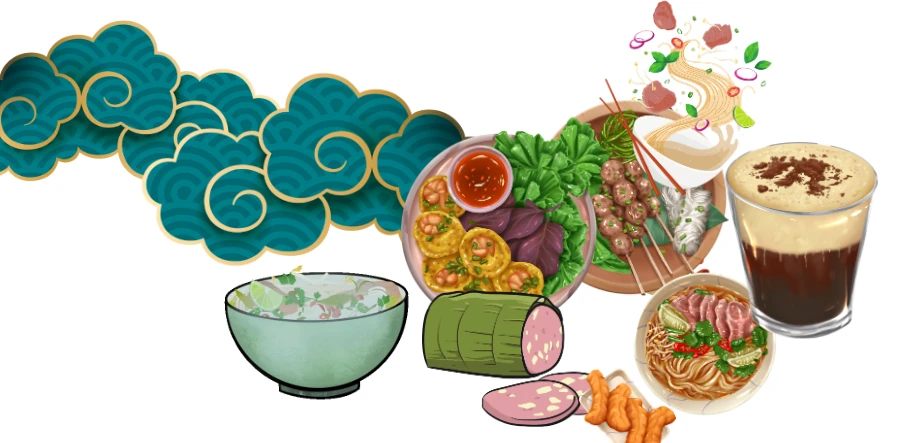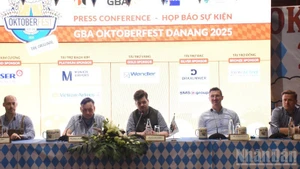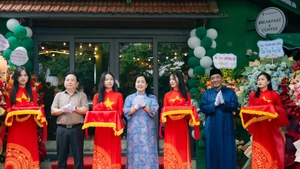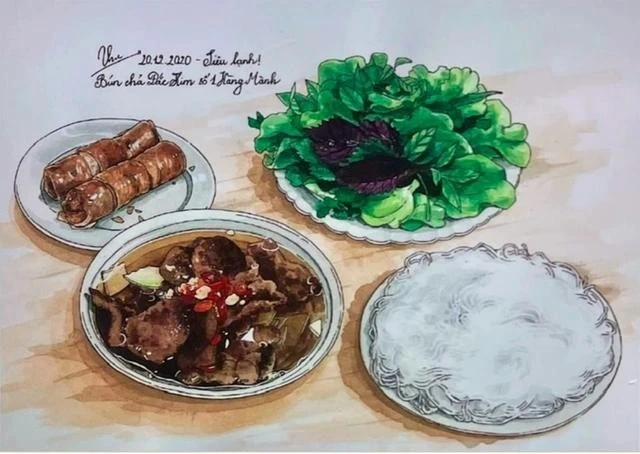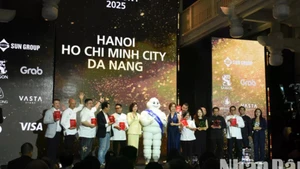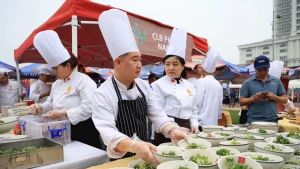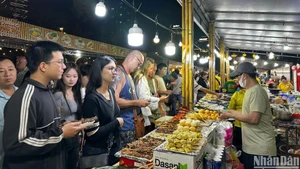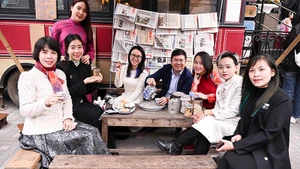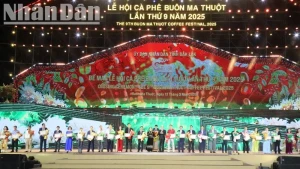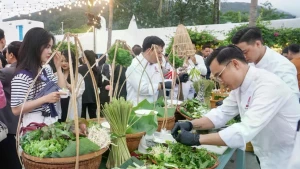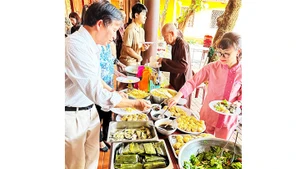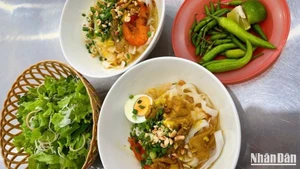Duong Lam villagers have come up with several new variants of ‘che lam’ by adding ingredients like ‘gac’ fruit and pandan leaves, making it more fragrant, colorful and flavourful.
Pandan leaves create green colour for ‘che lam’ with its green colour while ‘che lam’ with ‘gac’ fruit has deep red colour.
The rice used to make che lam is the golden flower glutinous rice, one of best varieties in Vietnam, grown only in the north of the country. First, the rice is roasted and ground into a smooth flour. Then it is cooked with water, sugar and ginger, stirred continuously to get the mixture thick. When the mixture is still hot, peanuts are added to give it a buttery, crunchy taste.
The amount of rice flour in the mixture is important. If there is not enough rice flour, ‘che lam’ will be very sticky and soft. On the other hand, too much rice flour can make it hard as a rock. When finished, the mixture is poured onto a tray of flour to avoid it from sticking to the tray and to add more fragrance.
For the pandan ‘che lam’, the leaves are boiled and the water is added when making the mixture. For ‘gac che lam’, the fruit’s flesh needs to be cooked before it is added to the mixture.
All the step to make ‘che lam’ take around 10 minutes. The last thing to do is to sprinkle some roasted sesame on top. After the mixture is left to cool for an hour, it is ready to be served.
A good ‘che lam’ is a little bit soft and chewy, lightly sweet and gingery, carrying the fragrant flavours of pandan or gac, along with the richness of peanuts. It’s best to enjoy ‘che lam’ on a windy day, when the weather starts getting colder, with some hot green tea to go with it.
